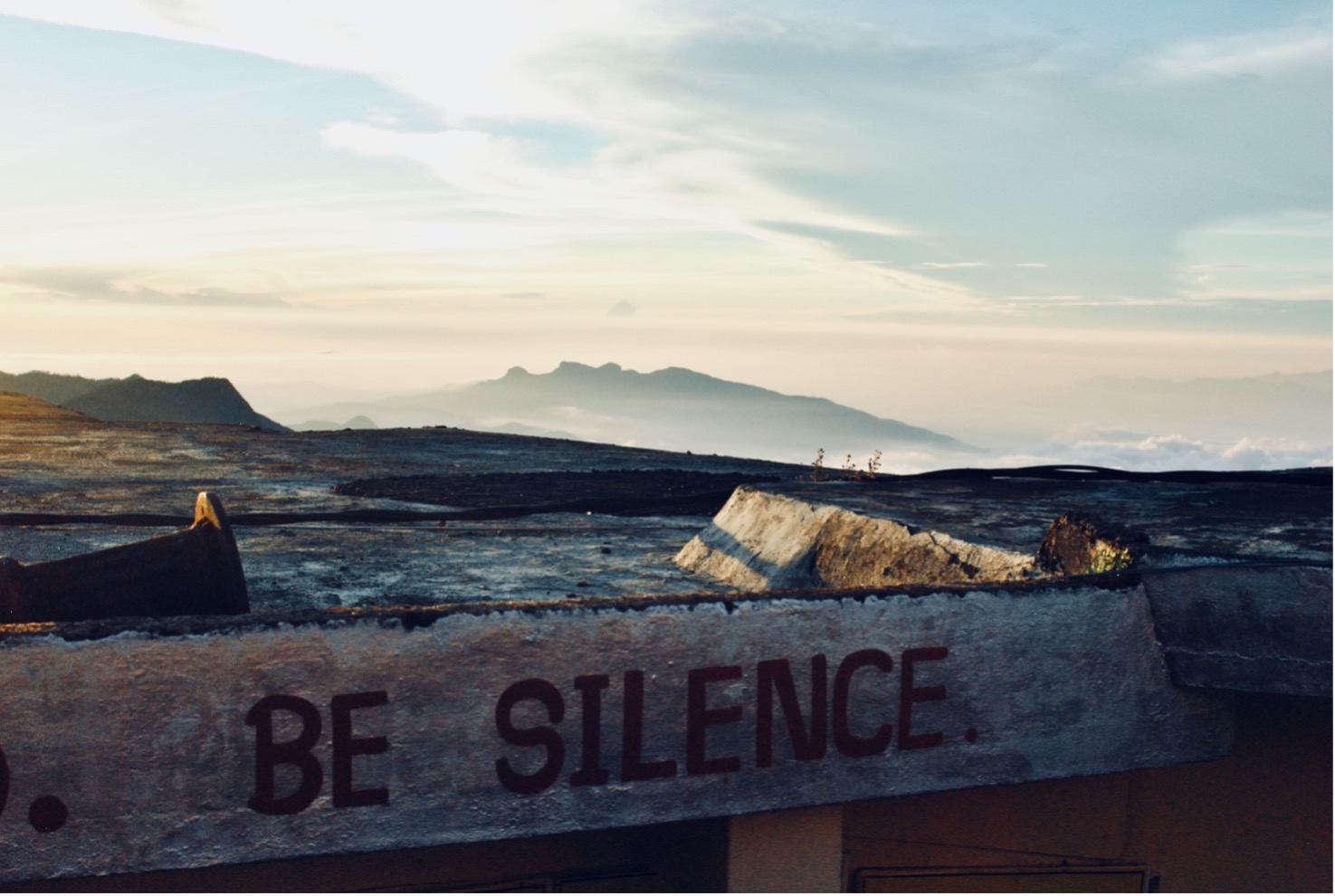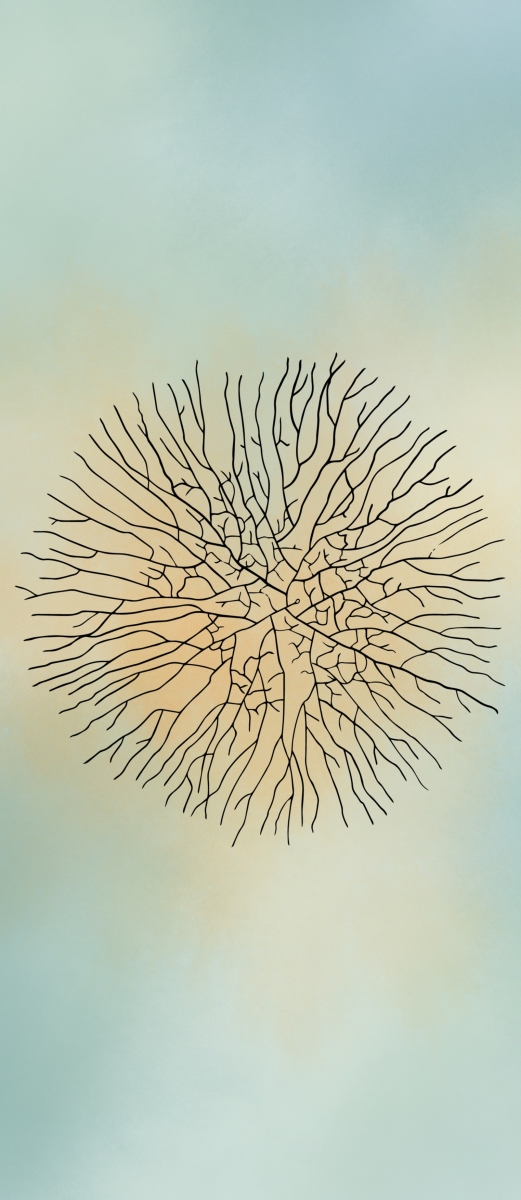On the first Sunday of every month, artist Derek Fernandez prepares his space of welcome. He sets up still life paintings, arranges some flowers and puts out some fruit to share. He lays out paints, brushes and empty canvases.
He exhibits some paintings done in previous months by others who have stopped by at this space, set up for a community hub called Curious Grace. When people start arriving at Fernandez’s parish in Sydney, Australia, where this mental health drop-in program runs, he says: “it’s very inviting, and they can have a go if they feel up to it”.
“A lot of the people that come to the painting table, they don't really talk … they just sort of want to be there,” Fernandez said. “It's really nice to just exist, to be with them.”
Fernandez’s table is one of various activities in Curious Grace, which the Justice and Peace Office of the Catholic Archdiocese of Sydney helped establish within that local faith community in early 2024.
Other activities set up by volunteers include a hand massage station, a knitting circle, areas for playing chess, as well as tables of food, fruit, baked goods, and coffee and tea, for everyone who stops by. All are welcome to participate in any of the activities on offer.
Knitting and crochet circles were introduced to engage the area’s ageing population, while hand massages created opportunities for connection and stress relief. These programs were not pre-determined by external organisations but emerged organically from community interactions.
In the warmer months of the year, the tables are set up outside the parish. Passers-by curious about the festive vibe stop to learn more. Most participants are parishioners streaming out of Sunday Mass.
Fernandez said the artist in him was drawn to volunteer his time as he believes art taps into curiosity and a childlike sense of wonder “beyond words and stories and labels that we like to come up with”.
“That’s at the core: people can let go of their stories, their trauma.”
“There's some sort of transformation that comes with painting, because it transmutes emotions and it comes from the heart,” he added. “If you're doing it - if you can let it - just the act of painting can process emotions.”
Degrowth, steady-state, and wellbeing economics present alternatives to the dominant economic model. Much of what really counts in life is not measurable economically. These alternative approaches warn of the peril humankind faces by devaluing or even destroying goods that aren’t, and perhaps can’t be, measured.
The growth paradigm is prevalent now not only in for-profit companies but in the government and not-for-profit sector as well. Some organisations that are set up to tackle social problems like mental health are simply too big to do so effectively.
In a review of the literature on post-growth, Jennifer Hinton distilled five characteristics of post-growth enterprises. One characteristic that came up was, of course, that post-growth companies remain small, local and do not want or need to grow. Again, this is easy to relate to in the context of an enterprise involved in manufacturing, but is perhaps counterintuitive in the not-for-profit sector. How could it be a bad thing for healthcare to scale up?
It turns out that it can be.
Dr Robbie Lloyd, our former colleague at the Justice and Peace Office, is very passionate about this. Robbie argues that regulatory reporting and compliance consumes 30-40% of care organisations’ time, resources and humanity, diverting them away from face-to-face relational care.
Curious Grace is a vibrant community hub operating at the grassroots level, fostering companionship, creativity, and conversation. Curious Grace embodies an alternative approach to mental health care by prioritising localised, accessible, and community-driven solutions over conventional growth-oriented models prevalent in the broader healthcare system.
Originating from Mildura in the Australian state of Victoria, Curious Grace began as a small café run by a small group of volunteers, centring mental health guidance and support on lived experience and local resources. The group had a consistent open-door policy to contribute and collaborate. Over time, the space evolved to include a pop-up library, refurbished piano, and computer lab, all sourced and sustained by the local community. At its core, Curious Grace aligns with Smith and Dombrowski's assertion of community economic practices improving wellbeing.
When the Justice and Peace Office learned about Curious Grace, a conversation began that led to its expansion in Sydney.
Prior to the launch of Curious Grace at St Canice’s Catholic Parish in March last year, members of the community were trained as volunteers in skills such as active listening, invisible case management, and social inclusion. This preparation ensured they were equipped to provide compassionate support to anyone seeking help. The team at St. Canice’s further tailored activities to reflect the community’s diverse demographics, honouring subsidiarity’s core value: empowering the local level to identify and address its unique challenges.
The team from the café in Mildura helped train the volunteers. Fernandez, the artist volunteer, said a role-play performance by the team during the training, about what it is like to be in a Curious Grace session, “shifted something in all of us in the room”.
“It’s actually holding space in a very present and loving way,” he said. “That’s really the key of what this is. It’s not just getting together.”
The response to the program underscores the need for simplified mental health support, emphasising accompaniment rather than treatment.
Curious Grace circumvents this issue by focusing on immediate, community-driven responses to mental health needs. Its tailored, adaptable approach echoes the principles of post-growth economics, highlighting the power of small, local initiatives to address systemic challenges.
Volunteer artist Fernandez said part of their training stressed consistency as key: “showing up and being that reliable presence because a lot of the people that come haven't had that reliability before”.
One of the participants from several months prior, he cites as an example, was “really interested” in learning and creating art but was hampered by poor health and mobility problems.
“This month she came back, and she was doing much better,” Fernandez said. “She was on different medication, and she was walking, and she showed me a painting she was working on.”
By prioritising face-to-face interactions over top-down service delivery, Curious Grace ensures that mental health care is not just a service but a shared community effort. This model not only serves immediate needs but also empowers the community to sustain and expand the initiative through local leadership.
“People get nourished, you know, physically by all the food.” Fernandez observed about the monthly community hub. “Then they sort of hang around and participate in the activities as they feel they can.”
“Sometimes they don't want to, and it's fine. They can just sit around and talk.”
Curious Grace exemplifies a sustainable, locally driven alternative to conventional mental health care. By redefining care as a cooperative and relational process, Curious Grace offers a blueprint for holistic and accessible mental health support. As Lorenzo Fioramonti observed, true wellbeing stems from care—care for one another, care for community, and care for the world around us.

Redefining happiness and wellbeing to ensure a sustainable future.

The language of a ‘degrowth transition’ is useful for mobilizing people and their collectives around policy objectives, but it retains an image of expert political actors who will ‘transition’ us from one state to another. We offer an alternative theory of change that aims for a ‘degrowth transformation’, or deeper shifts in ideology and daily practices. It will not be enough to solely focus on changing policies and institutions; it is essential to embody the transition and its deeper meanings in a personal way as well.